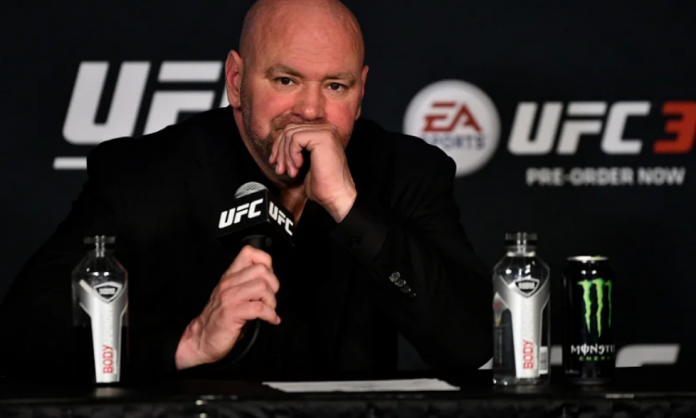The year is 2070. A global catastrophe—climate change, nuclear winter, civil war: pick your poison—recently ended civilisation and opened a new chapter in your life. So far you’ve ridden it out smoothly in your luxury bunker, but one day you’re swimming laps in the pool, living out your Bond-villain dream, when an alert blinks on your home security console.
Someone has gotten past your defences. Dressing quickly, you ascend past your artificially sunlit garden, wine vault, bowling alley and greenhouse to arrive through a secret door into the above-ground mansion you’ve long since abandoned. Armed like Sergeant Angel at the end of Hot Fuzz, you step onto your driveway and see a woman with a bundle in her arms.
Rewind back to the present day. “Honestly”, former president of the American Chamber of Commerce in Latvia J.C. Cole explains to Douglas Rushkoff, author of Survival of the Richest, “I am less concerned about gangs with guns than the woman at the end of the driveway holding a baby and asking for food. I don’t want to be in that moral dilemma”. You might live out the apocalypse in style, but will you be able to feel good about it?
This is where Cole’s niche comes in. He’s one of the many entrepreneurs marketing bunkers and militarised retreats for the wealthy, but with a spin—he’ll give you a good conscience while the world burns. As Rushkoff explains, “for US$3 million, investors not only get a maximum security compound”, but also a stake in a network of local farm franchises that would do their best to “ensure there are as few hungry children at the gate as possible”.
Strangely, Cole hasn’t yet managed to convince anyone to invest. Perhaps he underestimates how willing his target market would be to use their guns and guard dogs to deal with any desperate people who might appear in their driveways, rather than bothering with farming franchises or anything else that might help those people survive.
Around the world, private islands, secluded valleys and remote pastures are disappearing behind the walls of luxury compounds. By buying them, the super rich hope to insulate themselves—not only from blast, heat and radiation, but from the consequences of their actions. And as all the biggest bunker-builders know, the best insulation isn’t the kind of “communitarian spirit” Rushkoff attributes to Cole’s venture. It’s bullets and fire.
SAFE (Strategically Armored & Fortified Environments) president Al Corbi recently spoke to the Hollywood Reporter (THR) about his company’s construction of an island fortress for a wealthy client. He explained that the client wanted to protect his family, “so we wound up literally building a 30-foot-deep lake skimmed with a lighter-than-water flammable liquid that can transform into a ring of fire”. That’s only the beginning: the property has flame throwers, gassing systems and anti-aircraft water cannons that, THR explains, “can also blow rainbows into the air as a backdrop to a barbecue or create rainfall on a sunny day”.
Elsewhere in America, hundreds of thousands of migrant agricultural workers toil in up to 46 degree Celsius heat during the summer, deprived of water, shade and rest. Corbi’s rainbows won’t shine over them; instead the rabble will face a wall of fire.
Another project of Corbi’s was Reliance Industries chairman Mukesh Ambani’s US$4.8 billion Mumbai residence. The skyscraper features an artificial snow room, allowing Ambani to enjoy a winter wonderland even as his company—owner of the largest oil refinery in the world—helps strip the snow from Kashmir and the Himalayas. The right kind of bunker can insulate you not only from guilt, but from the warming world you have created.
Last December WIRED published an in-depth investigation into the construction of Facebook CEO Mark Zuckerberg’s huge compound in Hawaii. Replete with tree houses, an estate 80 percent the size of Sydney’s CBD and a bunker twice the size of the average Australian home, the compound is likely to cost over A$400 million. Following WIRED’s reportage, interest has spiked in these colossal projects, the Daily Mail asking, “What do they know? World's billionaires are building bunkers and assembling fortresses outside their mansions”.
If the billionaires’ hope really is to escape the global disasters they are helping to bring about, and not just to LARP as supervillains, then there’s some bad news. They don’t dream of being a lone (or partnered) survivalist like Bill from The Last of Us. They dream of life in a palace, waited upon by a legion of staff and defended by a private army.
Rushkoff’s fascination with billionaire preppers began when he was flown to the desert to give a speech on the future of technology, only to find himself in a room with just five men “from the upper echelon of the tech investing and hedge-fund world”. The issue they really wanted to ask about was the apocalypse. After a broad-ranging discussion about where and how, a single question occupied them for the rest of the hour: “How do I maintain authority over my security force?”.
Even in the nihilistic war of all against all imagined in apocalyptic fiction, the masters still need their slaves. “What,” one of Rushkoff’s clients asked, “would stop the guards from eventually choosing their own leader?”. Pharaohs they may be—the richest people in all human history—but capitalists like Zuckerberg will never be able to escape their working-class gravediggers.










